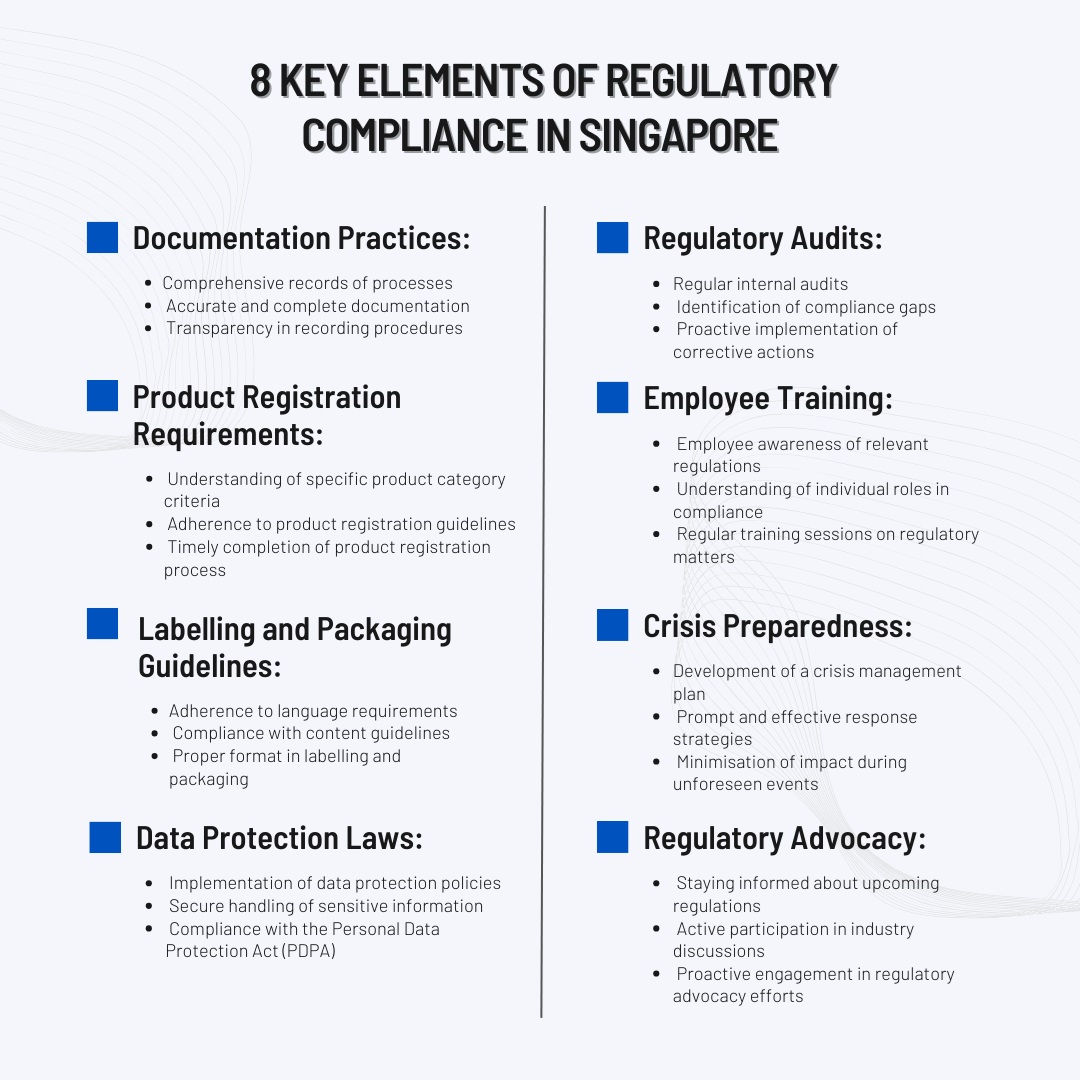Navigating the complex landscape of regulatory affairs in Singapore is crucial for businesses looking to establish a strong and compliant presence in the market. Regulatory compliance ensures that companies meet the legal requirements set by authorities, safeguarding consumers and businesses.
However, many Singaporean enterprises often make common mistakes that can lead to regulatory issues. In this article, we will explore ten common mistakes to avoid in regulatory affairs for businesses operating in Singapore.
Neglecting Regulatory Affairs Services:
One of the primary mistakes businesses make is neglecting the importance of professional regulatory affairs services. Engaging with experienced regulatory consultants can help companies stay abreast of the ever-evolving regulatory landscape in Singapore. These experts provide valuable insights, interpret complex regulations, and assist in developing strategies for compliance.
Inadequate Understanding of Local Regulations:
A lack of comprehensive understanding of local regulations is a prevalent mistake among businesses in Singapore. Each industry has its unique set of regulations, and companies must stay informed about the latest updates and changes. Failure to comply with industry-specific requirements may result in penalties or legal action. Regularly updating the knowledge base and seeking expert advice can help businesses adapt to regulatory changes effectively.
Poor Documentation Practices:
Incomplete or inaccurate records can lead to serious consequences during audits or inspections. Businesses must establish robust documentation practices to record processes, procedures, and compliance measures. Proper documentation ensures transparency and serves as evidence of a company’s commitment to regulatory compliance.
Overlooking Product Registration Requirements:
For businesses dealing with regulated products, overlooking product registration requirements is a significant mistake. Each product category may have specific registration criteria imposed by regulatory bodies. Companies must thoroughly understand and adhere to these requirements to avoid delays in product launches or, worse, the suspension of operations. Seeking professional guidance for product registration can streamline the process and enhance compliance.
DISCOVER: Dos And Don’ts In A Regulatory Consultation Meeting
Failure to Conduct Regulatory Audits:
Regular checks are crucial for fixing rule-following gaps in a company. Many businesses forget to do these checks, making them prone to breaking rules. Doing regular checks helps companies see if they’re following the rules, fix problems early, and stay on track. This active approach is vital for keeping a culture of always following the rules.
Ignoring Labelling and Packaging Guidelines:
Singaporean regulatory authorities have strict requirements for product labelling, including language, content, and format. Non-compliance with these guidelines can lead to product recalls and damage a company’s reputation. Businesses must pay meticulous attention to labelling and packaging to ensure compliance with local regulations.
Disregarding Data Protection Laws:
With the increasing reliance on digital technologies, businesses must not overlook data protection laws. Singapore has robust regulations to safeguard personal data, and companies must comply with the Personal Data Protection Act (PDPA). Neglecting data protection requirements can result in severe penalties and erode customer trust. Businesses must implement robust data protection policies and practices to secure sensitive information and ensure compliance with the PDPA.
Underestimating the Importance of Training:
Not training employees enough about rules is a common mistake. Everyone should know the rules and what they need to do to follow them. Regular training can help create a culture of following rules, making it less likely for mistakes to happen. Employees who know the rules well are important for a business to stick to regulations.
Lack of Crisis Preparedness:
Not having a plan for crises is a big mistake many companies make. Unexpected things like recalling products or facing regulatory investigations can harm a company’s reputation and finances. A good crisis plan helps businesses deal quickly and effectively with sudden regulatory issues, lessening the impact on their operations.
Failure to Engage in Regulatory Advocacy:
Businesses often overlook the importance of speaking up for rules that affect them. Staying informed and actively joining industry discussions lets them have a say in decisions. Being proactive in regulatory advocacy helps businesses contribute to making sensible rules that support industry growth and protect consumers.
Conclusion:
Avoiding these common mistakes in regulatory affairs is crucial for Singaporean businesses aiming to thrive in a highly regulated environment. Taking a proactive approach to regulatory affairs mitigates risks and enhances the business’s overall reputation and credibility.
Contact Reg Consultants if you are still looking for a regulatory affairs provider!





